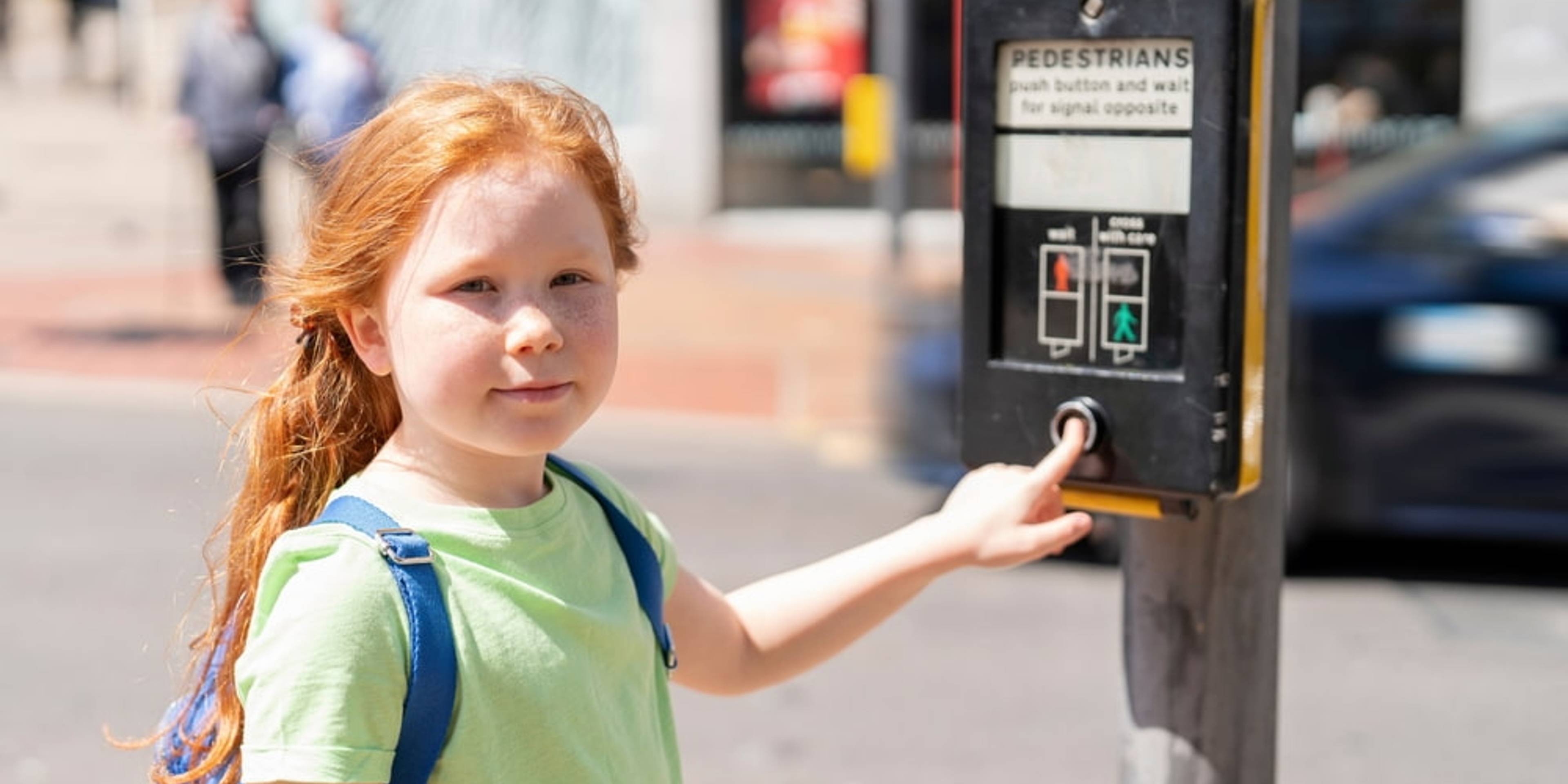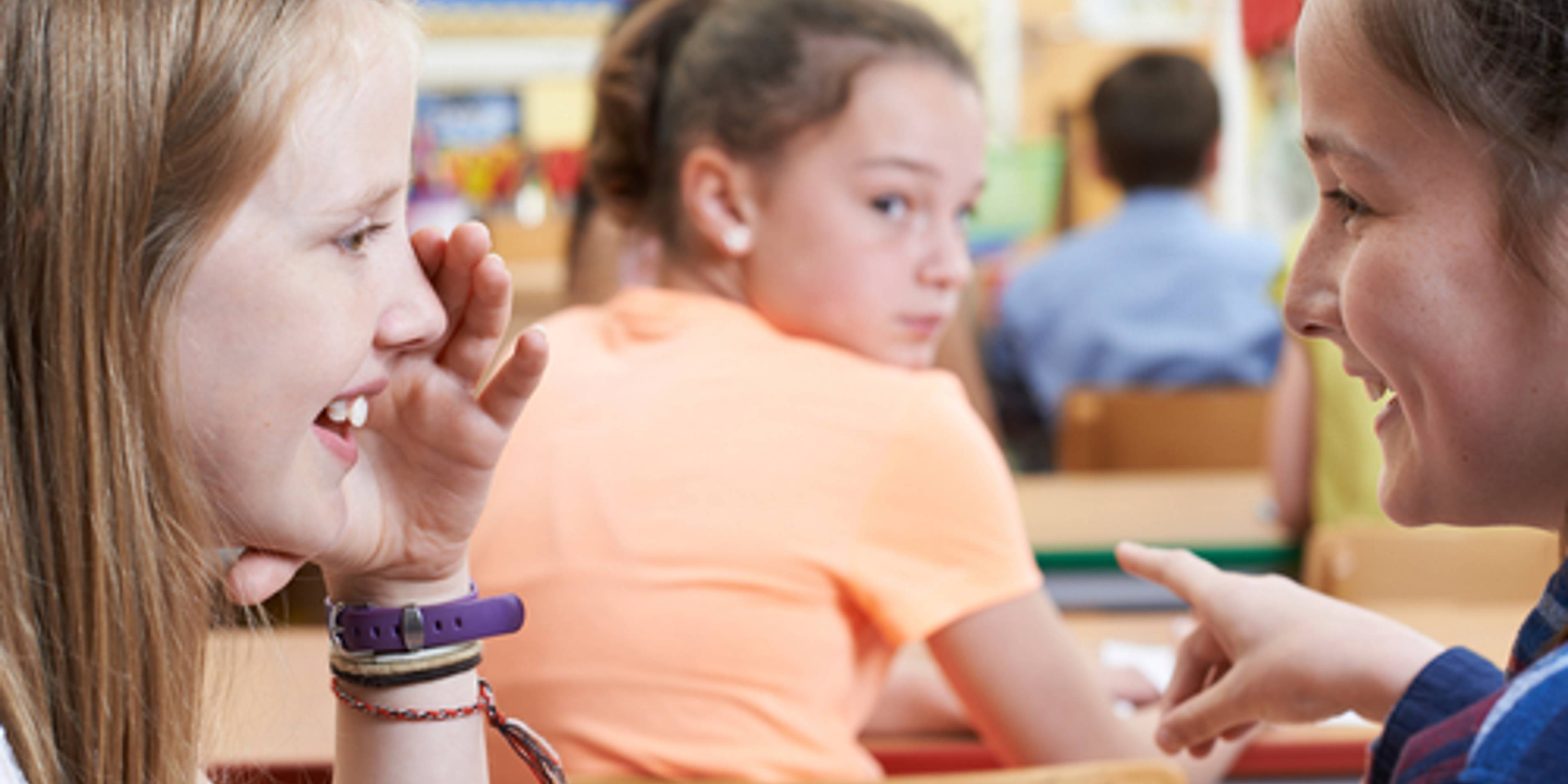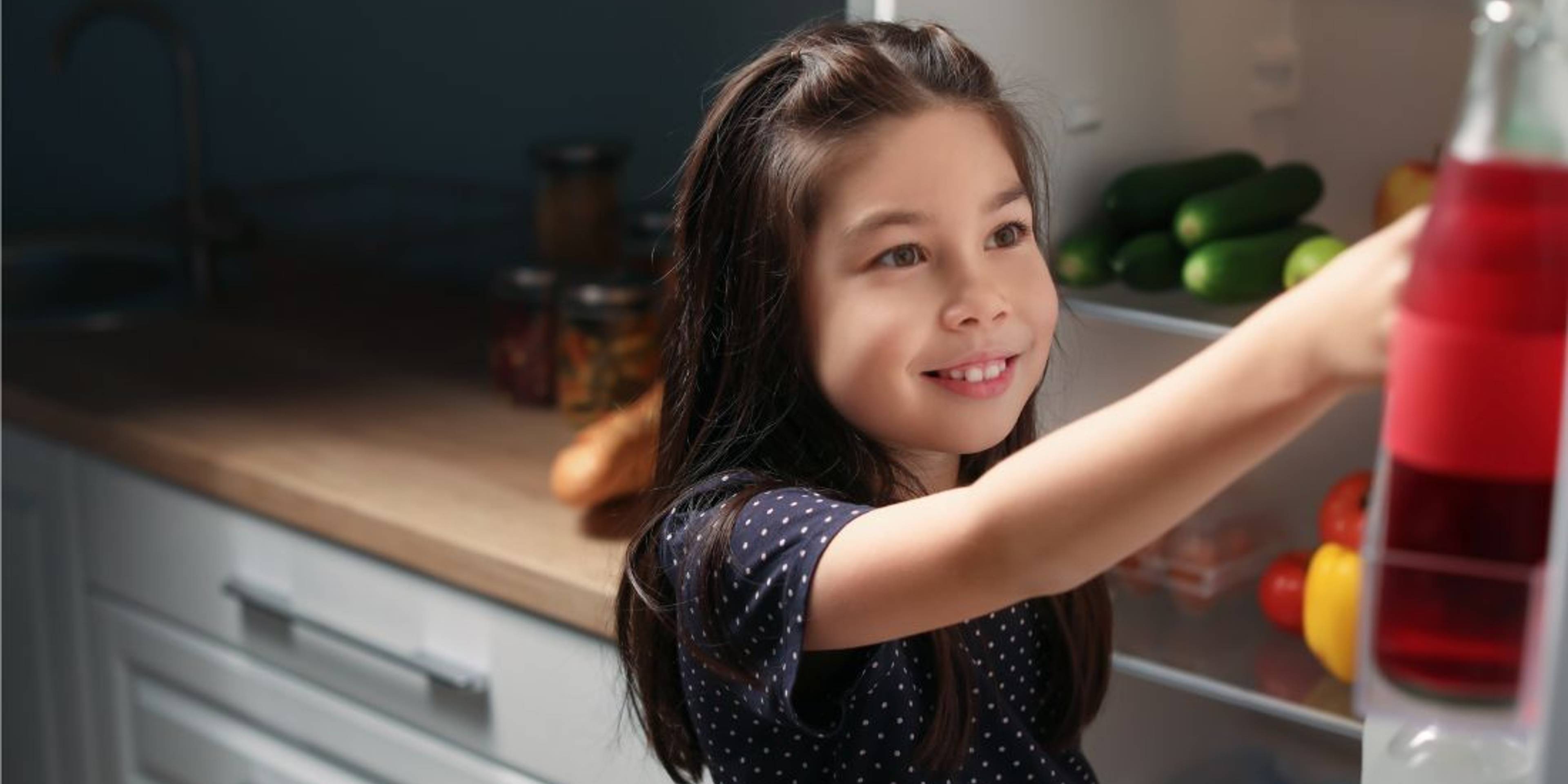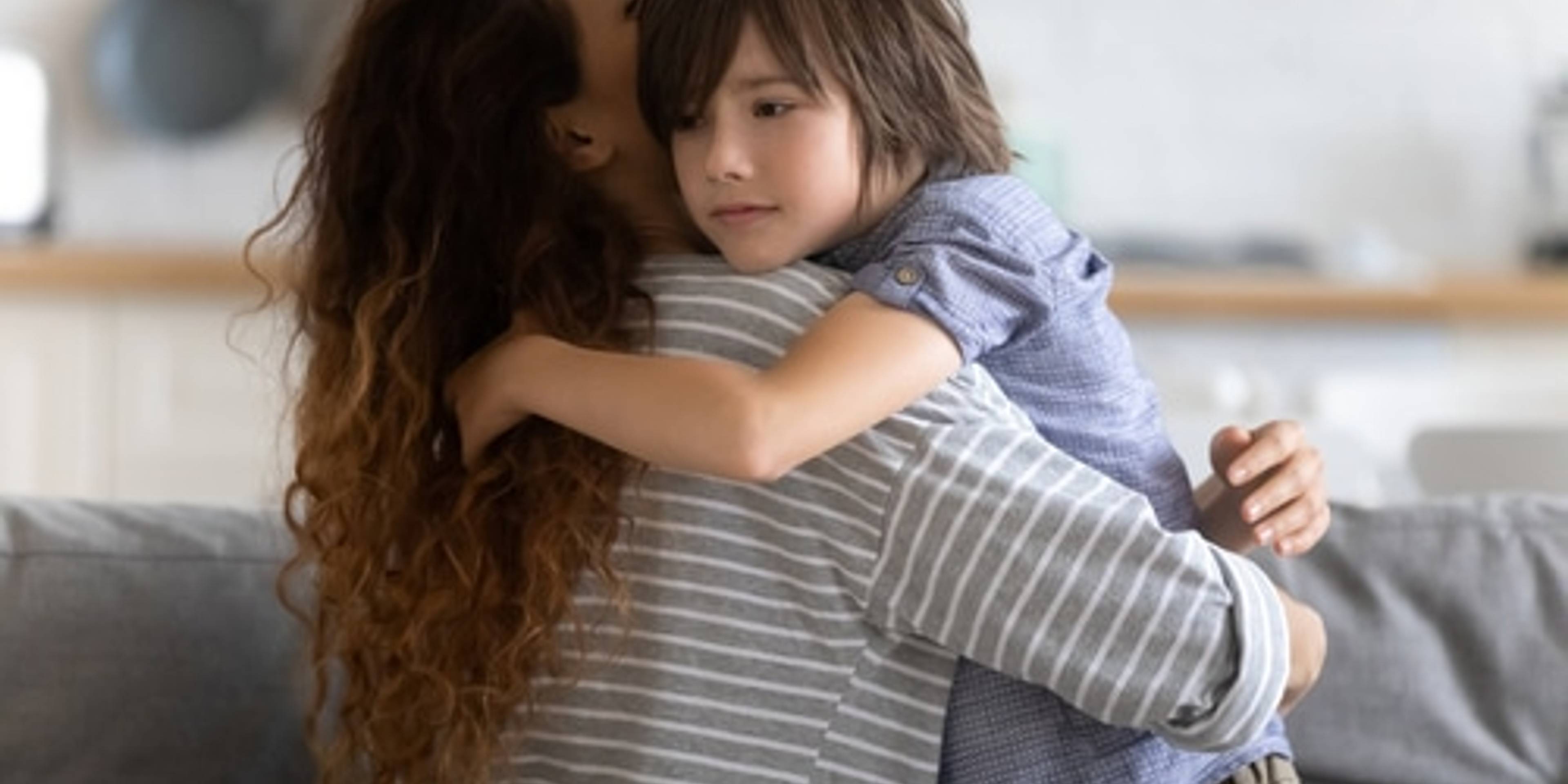February 17, 2023
What’s the best way to talk to my son about puberty and growing up?

I’m a single mum with a 12 year old boy. How do I address the topic of hormones, changes to body and give my son comfort, so that even though I’m not his father, he can still come to me to talk, discuss and emote? I want him to feel open and willing but also appreciate this is probably something he would naturally go to his dad for.
We asked leading expert, Charlotte Markey, Professor of Psychology at Rutgers University, to answer this fantastic question from a Tooled Up mum. Charlotte has published numerous academic studies in this field and has also written two amazing books on body image for tweens and teens which we highly recommend. Details are at the bottom of the article.
We asked leading expert, Charlotte Markey, Professor of Psychology at Rutgers University, to answer this fantastic question from a Tooled Up mum. Professor Markey has published numerous academic studies in this field and has also written two amazing books on body image for tweens and teens which we highly recommend. Full details can be found at the end of this article.
Professor Markey says…
In movies, we tend to see moms having “the talk” about puberty and sex with their daughters and dads having this conversation with their sons. In real life, it doesn’t always work this way. Oftentimes, whichever parent is more comfortable or more available ends up discussing the birds and the bees with their kids. I actually think that there can be value in opposite-sex parents discussing these important developmental and health issues with their kids; one day these kids may have opposite-sex partners and there’s value in growing comfortable with discussing significant issues – even when they can be awkward at times – with the important people in our lives.
Having said all of that, I think this mom is already on the right track to being an excellent source of information and support for her son, just in acknowledging that she wants to be there for him. She could start off by telling her son some version of what she wrote in her question, “I’m here for you, you can come to me with questions or concerns.”
Here are a few practical tips for having conversations about puberty with pre-teen and teenage kids:
- Don’t say too much at once. No kid likes to be lectured by their parents, especially if it’s a topic that may be awkward.
- Talk about puberty and other important health issues early and often. A lot of small comments and conversations will prove more valuable (and easier!) than planning for “the talk.”
- Use television and movies you watch together as a segue into conversation about these issues. Comment on something you’re both watching and ask your child what he or she thinks about what the characters are doing or experiencing.
- Start a conversation in the car when your child is both stuck with you and you don’t have to look directly at each other. Having an excuse to not make eye contact can keep things surprisingly easier to discuss.
- Make good, evidence-based books available to your kids. They will pretend they aren’t looking at them and will balk when they see a book show up in their room, but they’ll look. This gives you a bit of control over the content that they are going to see and offers them an alternative to looking online.
- Ask what they are learning in school. This can be important to your own conversations; you can build on what they’ve already learned or use school lessons as an opportunity for discussion.
- Don’t be afraid to use humour. These are serious issues, but it’s better to laugh at some of the awkwardness and for all involved to grow to find these conversations fun and useful than dreaded and overly serious.
- Don’t over-rely on your own experiences when you were an adolescent. Although us parents tend to think that our adolescence was just yesterday, we may seem ancient and out of touch to our kids. And our kids are legitimately having different experiences than we did.
- Be sure to ask questions and listen. Often, we want to be the authority and we want to tell our children what to do and how to feel. But as they get older, it becomes increasingly obvious that they are their own people. If we want to get to know who they are and support them, we have to ask questions and we have to listen.
In terms of content, there are some issues that are particularly important to discuss with our boys:
- Consent. This wouldn’t be the first issue I’d tackle with my son, but it may be one of the most important. It is not unusual for adolescents’ first sexual experiences to be unplanned; they tend to be rather opportunistic creatures. It’s important that boys understand that consent is the absolute least that’s necessary before having any sexual encounter with any partner. Conversations about safety and relationship issues are also incredibly important.
- Safety. Speaking of safety, many teachers and schools cover issues pertaining to safe sex well, but not all do. Talking about safe sex is not the same thing as condoning adolescent sexual behaviour (the research is very clear that talking about this does not make teens interested in having sex; usually they are already interested!). It’s important that young people know how to access contraception and information that will contribute to their responsible sexual behaviours.
- Pornography. The average first time that boys view pornography is at 11 years of age. They are curious and pornography is incredibly easy to find online. It’s also much more explicit (and often aggressive) than the pornography of a generation ago. It is important to not shame kids for their curiosity, but to make sure that they understand that if they watch pornography, they are not watching accurate portrayals of adult intimacy. Everything, from the way that people interact with each other in pornography (often with men being dominant and sometimes domineering), to the appearances of people featured in pornography (portraying beauty ideals without a single hair anywhere but their heads), are problematic depictions of sexual encounters. Kids need to be told about these problems with pornography.
- Media literacy. It’s not just pornography that’s problematic. We need to make sure to let kids know that what they see on the internet or on social media in general is not necessarily accurate (see my point above regarding books as resources). Online articles and posts are often not reviewed or evaluated and may provide misleading or even inaccurate information about puberty and sexuality. We want our kids to appreciate this and to realise that we can be reliable sources of information. All the better if we steer them towards reliable sources online (such as this one!).
- Normalise physical change. Everyone’s body changes with age, and this is especially true during puberty. Some of the changes are welcome, some of them are not. It’s important that we help our kids to understand that what they are experiencing may feel uncomfortable or strange at times, but it is completely normal.
As our kids make their way through adolescence, they are increasingly likely to turn to their friends for conversations about important issues. This is developmentally appropriate, even though it may feel a bit hurtful at times. What is important is that they know they can come to us to discuss anything and that we’ll do our best to answer their questions honestly.
Professor Charlotte Markey, 2023.
If you are a Tooled Up parent, you can access any of our resources on the issues raised by Professor Markey. The library is packed full of tip sheets, activities, podcasts and webinars on digital and media literacy, pornography, consent, healthy relationships and body image, including two podcast interviews with Professor Markey!
We also very highly recommend her fantastic books for boys and girls, which cover issues of body image, puberty, diet, exercise, self-care, mental health, social media, and everything in-between. They are exactly the kind of evidence-based, reliable and informative reads that we need to make available to our children. They are also extremely readable and visually engaging. We love them!
More Parenting Questions

Jun 23, 2025
There was an attempted abduction locally. How can I support my child?
It might not feel like it right now, but it’s worth knowing that stranger abductions of children are extremely rare. In the UK, there are around 500–600 reports of child abduction each year, but the vast majority are attempted rather than successful, and many are later reclassified as misunderstandings, rather than genuine abductions.

Jun 17, 2025
My daughter (aged 10) has broken up with a friend. How can I help her?
It is the hardest experience as a parent, watching our children muddle their way through friendships, knock backs, being included then excluded, invited to parties and then kept at bay. We have all been there and it can feel emotionally painful and sad.

Mar 20, 2025
Help! My five year old is wetting the bed at night. What can I do?
You're not alone! Nocturnal enuresis, or bedwetting, is common in young children. We've asked paediatrician, Dr Christine Riyad, for advice.

Mar 17, 2025
My 10 year old is experiencing big emotions. Do you have any advice?
We've asked Dr Sophie Nesbitt, Consultant Child Psychologist, for her top tips.

Feb 12, 2025
Is it ok for my four year old to still use a dummy?
It's completely natural to feel concerned when your child continues using a pacifier or sucking their thumb beyond the toddler years. We've asked paediatrician, Dr Christine Riyad, for advice.

Dec 31, 2024
My son wants to buy his girlfriend an 18th birthday present. Help!
Give yourself a pat on the back as your teen is asking YOU for advice. It is a sign that there is good communication between you, and that he sees you as a source of knowledge! I think his question is a wonderful one. Why? Because it shows he values the relationship, recognises the importance of a milestone birthday and knows that gift-buying is not a simple activity.

Dec 18, 2024
What do we need to consider when thinking about hiring a tutor?
Private tutoring can be a great way to support your child's education, but finding the right person can also feel overwhelming. The tutoring industry is largely unregulated in the UK and so it can be challenging to know where to start or what to look for.

Oct 22, 2024
My 11 year old daughter is always hungry. Should I be concerned?
This is a common concern for many parents. Engaged and attentive parents are generally mindful of their child’s relationship with food. This is not surprising given the shameful narrative surrounding the idea of being overweight or obese, and the association that is often made that this is linked to neglectful parenting.

Jun 03, 2024
How can I best support my son with changes to his class next year?
Firstly, it is normal to worry about changes that lie ahead for our children and to worry about their ability to cope. You aren’t alone. The start of a new academic year is always full of changes to school life. New classrooms perhaps? Timetables? Teachers, pupils, curricula, canteen menus? You sound like you are holding a lot of anticipatory anxiety about the changes that are forthcoming. These changes have likely been explained to you by the school, and perhaps you still feel fearful?

Apr 22, 2024
How can I support my teen through a break up?
Early teen romances can certainly feel exciting and exhilarating but most are also short-lived, and supporting our children through them is something we will likely have to do several times over the years to come. Here are some tips to help you to support your daughter.